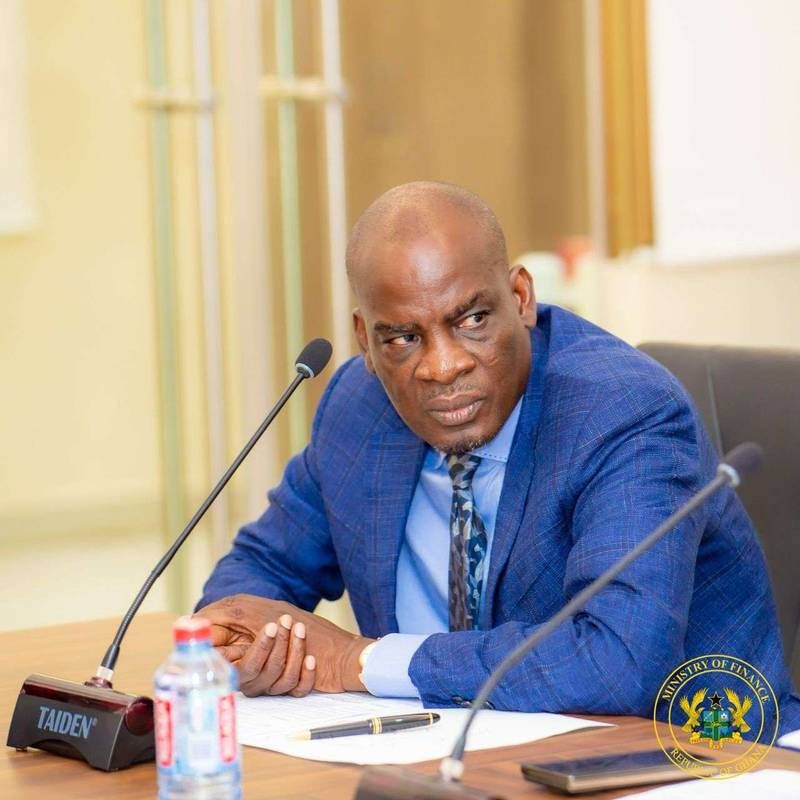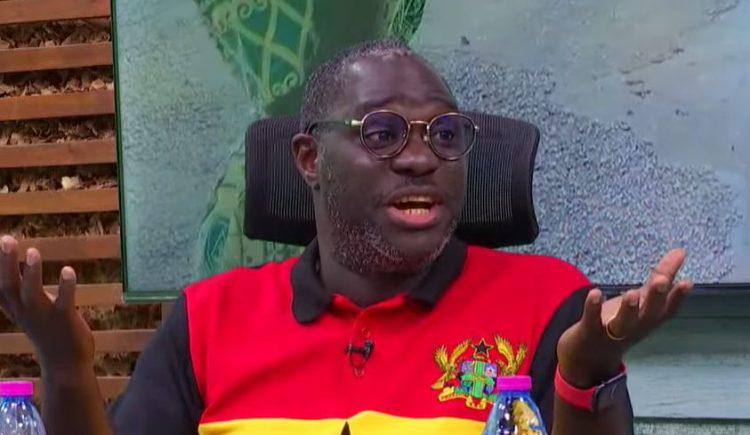Former Government Spokesperson on Security and Governance and lecturer at the University of Professional Studies, Accra (UPSA), Dr. Palgrave Boakye-Danquah, has questioned the government’s renewed emphasis on grooming standards in secondary schools, arguing that hairstyle choices have no direct link to a student’s discipline or moral upbringing.
His comments come in response to Education Minister Haruna Iddrisu’s recent directive to the Ghana Education Service (GES) to enforce stricter discipline across Senior High Schools (SHS), including tighter control over student hairstyles and grooming rules.
Dr. Boakye-Danquah urged education authorities to adapt disciplinary approaches to modern realities, saying Ghana’s education system should evolve alongside global trends.
“From what I am seeing, how we are doing our things is gradually becoming as though we are still in our medieval days, and we can’t be in our medieval days. We must develop with the growing trends in this country,” he said.
Calls for Modern, Inclusive Education Policies
Dr. Boakye-Danquah argued that a student’s haircut or hairstyle has little to do with character formation or academic performance. He described continued enforcement of haircut rules as outdated, noting that the country’s approach to discipline should focus on developing values such as honesty, respect, and responsibility rather than uniform appearance.
“Obviously, there is no correlation between character formation and cutting hair. It is troubling in the 21st century that we continue to have this debate,” he remarked.
He pointed out that Ghana’s education system should prepare students for a globalised world that embraces diversity and individual expression rather than conformity.

The UPSA lecturer referenced the 2021 case of Tyrone Iras Marhguy, a Rastafarian student who was initially denied admission to Achimota Senior High School because of his dreadlocks. The case sparked nationwide discussion on cultural expression, religious freedom, and grooming rules in schools.
Dr. Boakye-Danquah said that case should have served as a valuable lesson for policymakers to review the relevance of rigid appearance rules in modern education.
“Tyrone Marhguy’s experience should have guided us to evaluate such issues case by case and help our students develop courage, confidence, and individuality,” he explained.
The Education Minister, Haruna Iddrisu, defended the government’s position while addressing students and teachers at the 75th anniversary celebration of Mawuli Senior High School in Ho on Saturday, October 25, 2025.
He maintained that schools are established to build character and shape responsible citizens, not to promote beauty or fashion trends.
“Schools are not beauty contests. They are institutions for discipline and moral formation,” he said, adding that the Ministry “will not tolerate long hair today or tomorrow.”
Mr. Iddrisu insisted that discipline must be non-negotiable in Ghana’s education system, warning that schools failing to enforce grooming rules would face sanctions.
His remarks came after a viral video showed a distraught first-year student of Yaa Asantewaa Girls’ Senior High School in Kumasi crying as her hair was cut before admission. The incident reignited debate about whether such grooming enforcement promotes discipline or infringes on student rights.

The controversy has divided opinion among parents, educators, and civil society groups. Supporters of the policy argue that uniform grooming standards promote equality and focus in school environments. Opponents, however, contend that such rules are relics of colonial-era education models and undermine creativity and self-esteem.
Education think-tank Africa Education Watch has in the past urged the Ministry to review school codes of conduct, suggesting that discipline should be guided by mutual respect and counselling rather than punitive measures.
Sociologists also note that in a multicultural society like Ghana, grooming policies can unintentionally marginalise students from certain ethnic or religious backgrounds. The Ghana National Association of Teachers (GNAT) has called for stakeholder dialogue to ensure that reforms balance order with inclusion.

The debate over hairstyle and discipline reflects a broader question facing African education systems: how to modernise school cultures while preserving discipline and social order. Many African countries, including Nigeria, Kenya, and South Africa, have recently reviewed school appearance policies after similar controversies involving religious and cultural identity.
In Ghana’s context, with over 1.3 million SHS students under the Free SHS policy, maintaining order is vital—but so is ensuring that policies align with human rights principles and the evolving values of the 21st century.
As Ghana continues to reform its education sector to meet global standards, the conversation around discipline versus self-expression is likely to remain central to policy discussions.
Both the Ministry of Education and critics like Dr. Boakye-Danquah agree on one point: discipline remains essential for learning. However, their disagreement lies in how it should be cultivated.
Education analysts suggest that rather than focusing solely on physical appearance, schools should invest in counselling programmes, mentorship, and civic education to instil lasting values.
For now, the hairstyle debate has once again highlighted the tension between traditional discipline and modern identity—a conversation Ghana must navigate carefully as it shapes the next generation of learners.
Read also: National PTA Endorses Discipline Drive in Schools, Urges Fair and Consistent Enforcement

